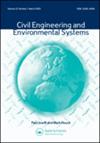来自中欧和东欧选定国家的大学生的环境智力水平
IF 1.1
3区 工程技术
Q3 ENGINEERING, CIVIL
引用次数: 2
摘要
本文的目的是描述和比较中欧和东欧选定国家的大学生的环境智力水平。这是使用作者在2015年收集的经验数据完成的。在本文的介绍和理论部分,定义了“环境智能”一词,并提出了现代社会学家(如M. Maffesoli和M. Archer)提出的问题。来自波兰、斯洛伐克和捷克共和国的受访者比来自乌克兰的大学生有更高的环境智力水平,学习自然科学的人比人文或社会科学的学生有更高的环境智力水平,这两个假设得到了验证。在文章的第二部分进行的统计分析显示,与来自乌克兰的受访者相比,来自欧盟国家的学生的环境智力水平更高。然而,环境智力水平与被调查者的研究院系之间没有显著差异。这表明学习自然科学并不能促进学生环境智力的动态发展。这一发现可能令人不安,因为如果年轻人不能负责任地使用和爱护环境,环境状况就无法改善。本文章由计算机程序翻译,如有差异,请以英文原文为准。
Level of environmental intelligence among university students from selected countries of Central and Eastern Europe
ABSTRACT The aim of this article was to characterise and compare the level of environmental intelligence among university students from selected countries of Central and Eastern Europe. This was done using empirical data collected by the author in 2015. In the introduction and theoretical part of this text, the term ‘environmental intelligence’ is defined, and issues raised by modern sociologists such as M. Maffesoli and M. Archer are presented. Two hypotheses stating that respondents from Poland, Slovakia and Czech Republic have higher levels of environmental intelligence than university students from the Ukraine, and those studying natural sciences have higher levels of environmental intelligence than students of the humanities or social sciences were verified. The statistical analysis conducted in the second part of the text revealed a higher level of environmental intelligence among students from the European Union countries compared to respondents from the Ukraine. However, there were no significant differences between the level of environmental intelligence and respondents’ faculty of studies. This indicates that studying natural sciences did not contribute to a more dynamic development of environmental intelligence in students. This revelation may be disturbing, as the state of the environment cannot improve if young people cannot use and care for it responsibly.
求助全文
通过发布文献求助,成功后即可免费获取论文全文。
去求助
来源期刊

Civil Engineering and Environmental Systems
工程技术-工程:土木
CiteScore
3.30
自引率
16.70%
发文量
10
审稿时长
>12 weeks
期刊介绍:
Civil Engineering and Environmental Systems is devoted to the advancement of systems thinking and systems techniques throughout systems engineering, environmental engineering decision-making, and engineering management. We do this by publishing the practical applications and developments of "hard" and "soft" systems techniques and thinking.
Submissions that allow for better analysis of civil engineering and environmental systems might look at:
-Civil Engineering optimization
-Risk assessment in engineering
-Civil engineering decision analysis
-System identification in engineering
-Civil engineering numerical simulation
-Uncertainty modelling in engineering
-Qualitative modelling of complex engineering systems
 求助内容:
求助内容: 应助结果提醒方式:
应助结果提醒方式:


